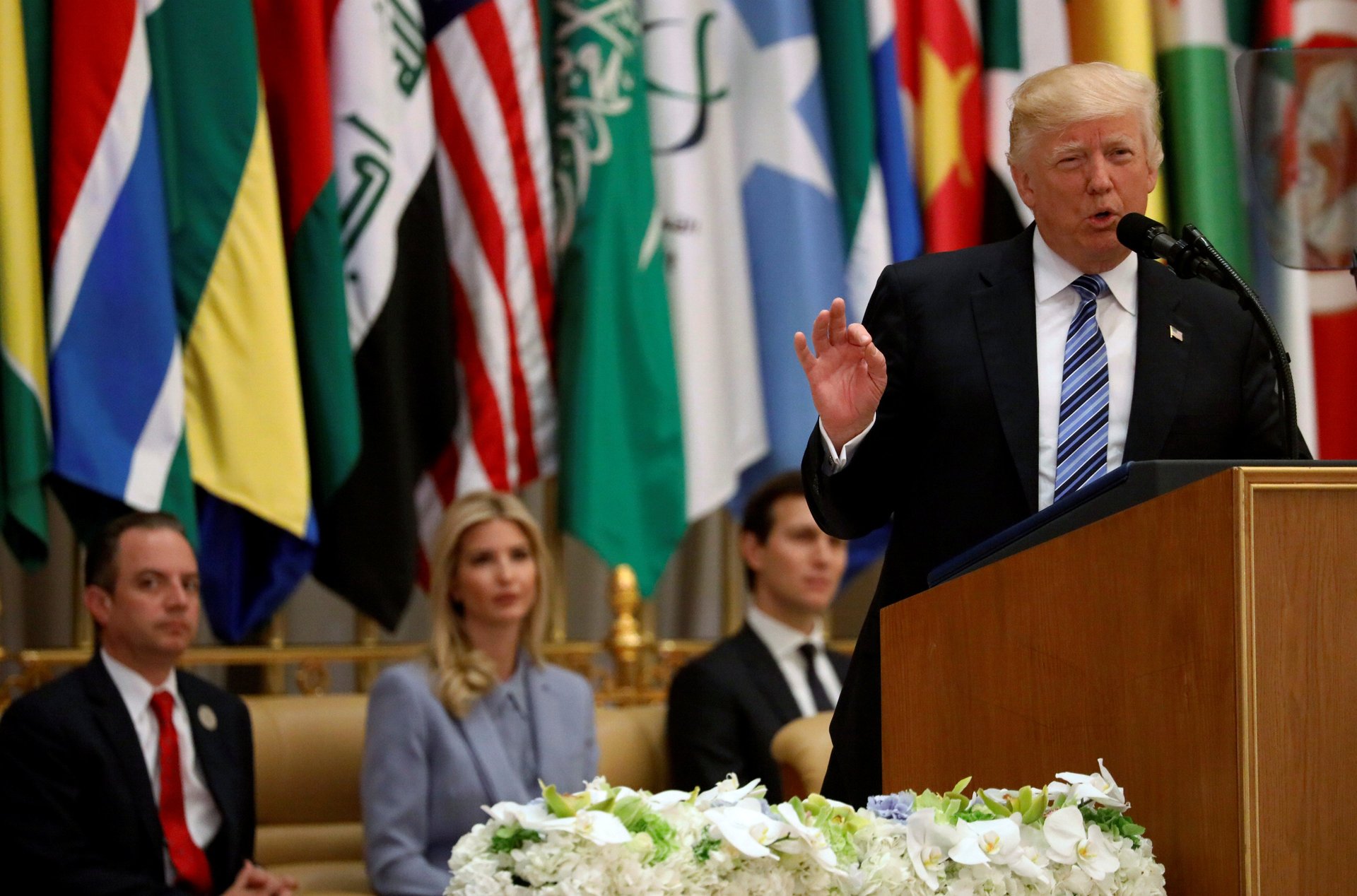“This is a battle between good and evil”: Donald Trump’s speech to the Muslim world
Donald Trump became US president by telling voters he wanted “a total and complete shutdown of Muslims entering” the country. “I think Islam hates us,” he said. Trump also repeatedly criticized president Barack Obama for not using the specific terms “radical Islam” and “radical Islamic terrorists,” suggesting that the articulation of those words was key to keeping America safe.


Donald Trump became US president by telling voters he wanted “a total and complete shutdown of Muslims entering” the country. “I think Islam hates us,” he said. Trump also repeatedly criticized president Barack Obama for not using the specific terms “radical Islam” and “radical Islamic terrorists,” suggesting that the articulation of those words was key to keeping America safe.
Trump didn’t use those words either, today in Saudi Arabia, in his vaunted address to a group of Muslim leaders and the Islamic world at large. His goal was to rally listeners around the idea of defeating “terrorists and extremists,” regardless of religious affiliation.
“This is not a battle between different faiths, different sects, or different civilizations,” he said. “This is a battle between barbaric criminals who seek to obliterate human life, and decent people of all religions who seek to protect it. This is a battle between good and evil.”
Still, there were echoes of the same tone-deafness Trump exhibited during a presidential debate in 2016, when he argued that America’s Muslim community needed to do more to prevent terror attacks. “Muslims have to report the problems when they see them,” he said at the time. “If they don’t do that, it’s a very difficult situation for our country.”
Trump’s call to Muslim nations—several of which he singled out for a controversial US travel ban in February—today was similar: “Muslim nations must be willing to take on the burden, if we are going to defeat terrorism and send its wicked ideology into oblivion. The first task in this joint effort is for your nations to deny all territory to the foot soldiers of evil.”
That wider narrative of good versus evil no doubt was inspired by Steve Bannon, Trump’s chief strategist. Bannon’s worldview, especially when understood in the context of some of his documentary filmmaking, includes the conviction that there’s a recurring battle between good and evil, and that the dark forces of evil have taken many forms, “radical Islam” is just the latest incarnation.